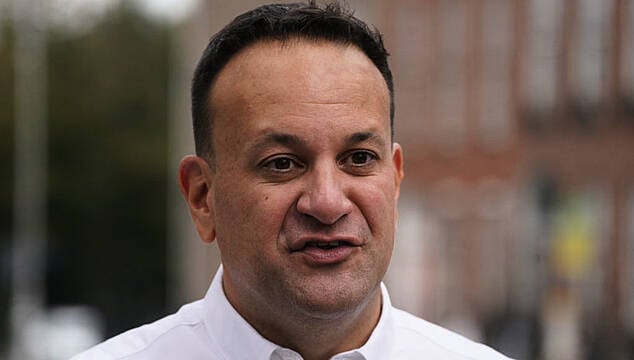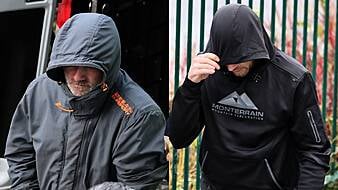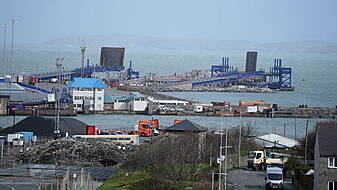The Taoiseach has downplayed suggestions of a Cabinet row over revised plans to accommodate Ukrainian refugees in Ireland.
Leo Varadkar was responding to claims of discord between ministers on proposals for placing a three-month limit on the period the state would be obliged to provide accommodation for people fleeing the war.
The Government is looking at moving from the current open-ended arrangements amid concerns the State will have no accommodation left for new Ukrainian arrivals next year.
In the Dáil on Wednesday, Aontu leader Peadar Tóibín asked the Taoiseach to respond to claims of a “ferocious row” at the Cabinet table related to suspicions the plan was a politically motivated attempt to push the responsibility for housing Ukrainians from the Department for Integration to the Department for Housing.
Mr Tóibín suggested “cracks were appearing” in the coalition as he asked Mr Varadkar whether the disagreement was “a cosmetic row” about “shifting the difficulties from one department to another”.
The Department for Integration is currently held by the Greens while Fianna Fáil holds the housing portfolio.
Mr Tóibín asked Fine Gael leader Mr Varadkar whether the alleged disagreement was evidence of parties making sure they were not “holding this political hot potato come the next election”, or an actual effort to make the system for housing refugees more sustainable.
The Taoiseach countered suggestions of a Cabinet bust-up.
“I can say that rows in Government are much exaggerated,” he said.
But he said the wider issue was a “serious one”.
Mr Varadkar said he was very “proud” of Ireland’s efforts to house around 100,000 Ukrainians since the war broke out, with 20,000 international protection applicants arriving from elsewhere in the world during the same period.
But he said it was “becoming increasingly apparent” that while there was no limit to the compassion of the Irish people there was a limit to state capacity.
“We just don’t know if we would be able to provide accommodation and all those additional supports if a further 30,000 to 50,000 people arrived over the course of the next year and based on current numbers it wouldn’t be too far off that,” said the Taoiseach.
Mr Varadkar also raised the issue of “secondary movements” of Ukrainian refugees who initially settled in one safe country before then deciding to move again to Ireland.
He acknowledged one factor was the attractive supports and benefits offered in Ireland.
“And that’s why we have to review the situation and we’re doing that at the moment and the overall intention would be to bring the offering we have more in line with other western European countries and that work is under way,” he said.
“There is no Government decision or agreement on it, but that work is under way at the moment.”
The Government has increasingly struggled to find suitable accommodation for arriving refugees, amid a shortage of private and public housing stock and record high numbers of homeless people in the state.
The new proposals would see an end to the offer of indefinite stays at state-provided accommodation.
An initial 90-day stay at state accommodation centres would instead be offered.
After the three months, Ukrainian refugees would have to find a place to live in the private sector.
Under these proposals, it is understood that children would receive education during the 90 days at the centres and would not attend local schools until after this period.







